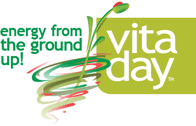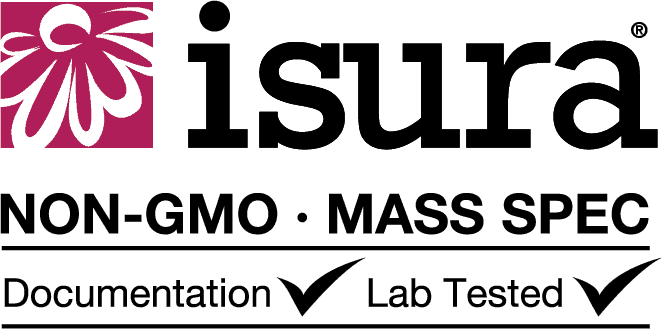Women’s | Women’s 50+ | Men’s | Men’s 50+ | Biotin | Prenatal Multi

Prenatal Multi
with organic greens, vitamins, and minerals
- Supports women’s nutritional needs during all stages of pregnancy, from conception through nursing
- Contains active coenzyme B vitamins, including B6, B12, and folate, for increased absorption
- Provides bioavailable and gentle forms of magnesium and iron
- Contains a whole food greens blend, ginger, inositol, and lutein
- Made with active forms of vitamins K2 and D3
- Helps support normal early fetal development
- Helps reduce the risk of neural tube defects when taken at least three months prior to becoming pregnant and during early pregnancy
![]()
VitaDay Prenatal multi is a comprehensive, daily, multi-nutrient formula designed to meet the specific needs of women pre-, during, and post-pregnancy. This formula features active coenzyme B vitamins, antioxidants, and a wholefood greens blend. It contains the nutrients needed to help support normal early fetal development and mother’s nutrition.
| Medicinal Ingredients | 1 vegetarian capsule | 3 vegetarian capsules |
|---|---|---|
| Vitamins | ||
| Beta-Carotene | 1250 IU (750 mcg) | 3750 IU (2250 mcg) |
| Vitamin D3 (cholecalciferol) | 332 IU (8.3 mcg) | 996 IU (24.9 mcg) |
| Vitamin E (d-alpha tocopheryl acid succinate) | 33.3 IU (22.3 mg AT) | 99.9 IU (66.9 mcg) |
| Vitamin K2 (menaquinone) as MK-7 (natto bean) | 6.6 mcg | 19.8 mcg |
| Vitamin C (calcium ascorbate, dihydrate) | 83.3 mg | 249.9 mg |
| Vitamin B1 (benfotiamine, thiamine hydrochloride) | 14 mg | 42 mg |
| Vitamin B2 (riboflavin 5’-phosphate sodium) | 8 mg | 24 mg |
| Niacin (inositol hexanicotinate) | 6.6 mg | 19.8 mg |
| Niacinamide | 6.6 mg | 19.8 mg |
| Pantothenic Acid (calcium d-pantothenate, pantethine) | 16.6 mg | 49.8 mg |
| Vitamin B6 (pyridoxal 5’-phosphate) | 11.6 mg | 34.8 mg |
| Biotin | 33.3 mcg | 99.9 mcg |
| Folate (from (6S)-5-methyltetrahydrofolic acid (MTHF), glucosamine salt, Quatrefolic®) | 333.3 mcg | 999.9 mcg |
| Vitamin B12 (methylcobalamin, dibencozide) | 333.3 mcg | 999.9 mcg |
| Minerals | ||
| Calcium (ascorbate, dihydrate, citrate, tetrahydrate, carbonate) | 76.6 mg | 229.8 mcg |
| Magnesium (oxide, bisglycinate) | 33.3 mg | 99.9 mg |
| Zinc (citrate) | 5 mg | 15 mg |
| Iron (ferrous fumarate, ferrous bisglycinate) | 6 mg | 18 mg |
| Iodine (potassium iodide) | 166.6 mcg | 499.8 mcg |
| Potassium (citrate, monohydrate) | 5 mg | 15 mg |
| Manganese (citrate) | 1.6 mg | 4.8 mg |
| Copper (gluconate) | 500 mcg | 1500 mcg |
| Boron (citrate) | 200 mcg | 600 mcg |
| Chromium (polynicotinate) | 133.3 mcg | 399.9 mcg |
| Selenium (selenomethionine) | 33.3 mcg | 99.9 mcg |
| Molybdenum (citrate) | 8.3 mcg | 24.9 mcg |
| Additional Ingredients | ||
| Ginger (Zingiber officinalis) (rhizome) | 100 mg | 300 mg |
| Inositol (inositol, inositol hexanicotinate) | 9.9 mg | 29.7 mg |
| Choline (bitartrate) | 8.3 mg | 24.9 mg |
| Lutein (Tagetes erecta) (marigold flower) | 1 mg | 3 mg |
| Whole Food Greens Blend | 10 mg | 30 mg |
A proprietary blend of:
Active Greens – Artichoke Extract, Black Currant Powder, Sprouted Broccoli Powder, Spinach Powder, Spirulina, Wheat Grass Juice Powder*, Barley Grass, Arugula;
Active Vegetables – Beet Extract*, Celery Extract, Tomato Powder, Cilantro Leaf, Caperberry, Black Radish, Red Radish, Carrot, Cabbage, Cauliflower, Upland Cress, Daikon, Wasabi Rhizome (Wasabia japonica), Watercress Leaf, Dandelion*;
Active Fruits – Açai Extract, Red Orange Extract, Grape, Pomegranate, Strawberry, Blueberry*, Raspberry, Bilberry, Schisandra Berry;
Herbals and Plants – Decaffeinated Green Tea Extract, Ginger Rhizome*.
*organic
Non-medicinal ingredients: Vegetarian capsule (carbohydrate gum [cellulose], purified water), microcrystalline cellulose, vegetable grade magnesium stearate (lubricant), stearic acid, silica, chlorella, Eucheuma seaweed.
Recommended adult dose: 3 capsules daily with food, a few hours before or after taking other medications or natural health products, or as directed by a health care practitioner. For prolonged use, consult a health care practitioner.
Contains no artificial colours, preservatives, or sweeteners; no dairy, sugar, wheat, gluten, yeast, egg, fish, shellfish, salt, tree nuts, or GMOs.
Research Information
The Society of Obstetricians and Gynecologists of Canada (SOGC) recommends that women of reproductive age take a prenatal multivitamin with folate (1). Prenatal multivitamins can help to fill nutritional gaps and support biological functions that
play a key role in the maintenance of good health.
Folate, and the related nutrient folic acid, help reduce the risk for neural tube defects, which affect the brain and spinal cord of a developing fetus (1). The risk for this defect is highest during the initial days of pregnancy. It is recommended that women with a low-to-moderate risk of neural tube defects take 0.4–1.0 mg of folic acid daily, beginning three months before conception. This is an important proactive measure to prevent folic acid–related anomalies in fetal development (1). Clinical studies show that folic acid supplementation at least three months preconception and during early pregnancy reduces the overall incidence of neural tube birth defects by 42–87% (2).
B vitamins are needed for the conversion of carbohydrates, fats, and proteins into energy. They are especially important during pregnancy to support increased energy needs and the formation of fetal tissue (3). To use B vitamins effectively, the body must convert them into their coenzymated forms. Many people have genetic differences that impair this conversion process, and instead the body excretes B vitamins before the liver can convert them into their active forms (4). Coenzymated B vitamins are already metabolically active for the body to use directly.
Women’s iron requirements increase during pregnancy to supply the growing fetus and placenta with additional red blood cells. Health Canada recommends that women take a daily supplement containing 16–20 mg of iron before and during pregnancy, in addition to eating foods that contain iron (5). The last trimester of pregnancy is particularly important because it is when the baby begins storing iron for use during its first six months of life (6). Many women become iron deficient during pregnancy, resulting in tiredness and fatigue. This formula provides 18 mg of iron per three daily capsules in the form of ferrous bisglycinate, an iron chelate that is gentler on the stomach and easier for the body to absorb than other forms of iron (7).
Calcium and magnesium are essential for the development and maintenance of bones and teeth, while vitamins D3 and K2 support
their absorption and activity (8). Women’s vitamin D intake during pregnancy directly impacts their child’s bone density (9). Additionally, calcium requirements go up during pregnancy to support the developing baby. Calcium supplementation has been shown to lower calcium turnover in bones during pregnancy (10).
Eating a healthy diet is especially important during pregnancy. This includes taking a multivitamin and mineral supplement to help cover nutritional insufficiencies that may be out of a mother’s control. A prenatal multi is an effective way to supply the wide range of nutrients needed to support the baby’s development and the expectant mother’s nutritional status.
References
- Wilson, R. D., Audibert, F., Brock, A., et al. (2015). Pre-conception folic acid and multivitamin supplementation for the primary and secondary prevention of neural tube defects and other folic acid-sensitive congenital anomalies. Journal of Obstetrics and
Gynaecology Canada, 37(6), 534-552. - Imdad, A., Yakoob, M. Y., & Bhutta, Z. A. (2011). The effect of folic acid, protein energy and multiple micronutrient supplements in pregnancy on stillbirths. BMC Public Health, 11, Suppl 3, S4.
- Visentin, C. E., Masih, S. P., Plumptre, L., et al. (2016). Low serum vitamin B12 concentrations are prevalent in a cohort of pregnant Canadian women. Journal of Nutrition, 146(5), 1035-1042.
- Meshkin, B. & Blum, K. (2007). Folate nutrigenomics: a convergence of dietary folate metabolism, folic acid supplementation, and folate antagonist pharmacogenetics. Drug Metabolism Letters, 1(1), 55-60.
- Health Canada. (2016). Prenatal nutrition guidelines for health professionals – iron contributes to a healthy pregnancy. Available from: https://www.canada.ca/en/healthcanada/ services/publications/food-nutrition/prenatal-nutrition-guidelines-healthprofessionals-iron contributes-healthy-pregnancy-2009.html [Accessed 30th January 2019].
- Fernández-Ballart, J. D. (2000). Iron metabolism during pregnancy. Clinical Drug Investigation, 19(1), 9-19.
- Ashmead, H. D. (2001). The absorption and metabolism of iron amino acid chelate. Archivos Latinoamericanos de Nutricion, 51(1 Suppl 1), 13-21.
- Zofková, I., Nemcikova, P., & Matucha, P. Trace elements and bone health. Clinical Chemistry and Laboratory Medicine, 51(8), 1555-1561.
- Mahon, P., Harvey, N., Crozier, S., et al. (2010). Low maternal vitamin D status and fetal bone development: cohort study. Journal of Bone and Mineral Research, 25(1), 14-19.
- Janakiraman, V., Ettinger, A., Mercado-Garcia, A., et al. (2003). Calcium supplements and bone resorption in pregnancy: a randomized crossover trial. American Journal of Preventive Medicine, 24(3), 260-264.
Questions

